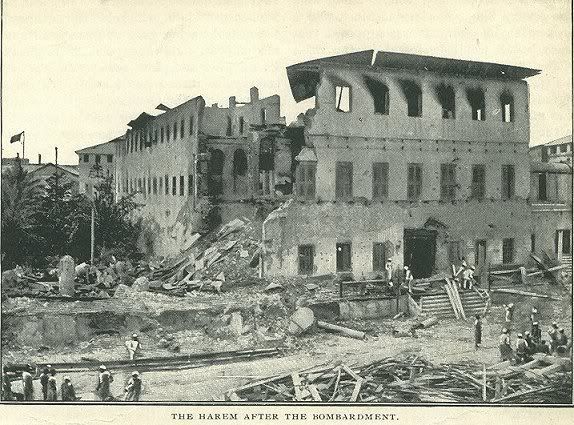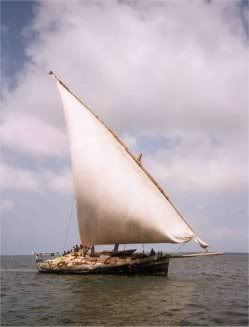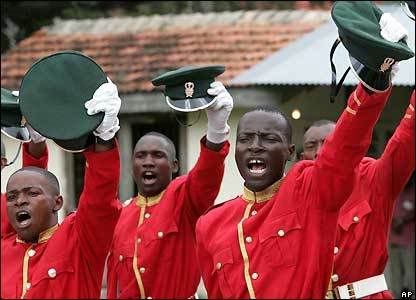The Anglo-Zanzibar War pitted the United Kingdom against Zanzibar on August 27, 1896 from 9:02 to 9:40am, according to a BBC chronology. Other sources have clocked the war at 40 to 45 minutes long. At any rate, the war was an exceedingly quick and decisive victory for the UK.
The events that precipitated the war included the death of a slave-trading sultan, a coup d’etat carried out by his rogue nephew and other intrigue. On the 24th of August, Sultan Hamad bin Thuwain, an ally of colonial power Britain, died.
Tensions had been growing between the British and the sultan over Zanzibar’s flourishing slave trade. Britain had been pressuring the sultan to abolish slavery. The deceased sultan’s nephew, Khalid bin Bargash seized power in a timely coup.
Sultan Bargash was a strong supporter of the slave trade. The British favored royal cousin Hamud bin Muhammed, who supported slavery but not to the extent of Bargash.
The British issued an ultimatum demanding that Sultan Bargash relinquish power by August 27 at 9:00am. Bargash had other plans, and conscripted a personal army of about 3,000 men (the regular army of Zanzibar consisted of just 900 soldiers, only a few of whom supported Bargash). Next, Bargash commandeered his dead uncle’s yacht (the HHS Glasgow) to serve as his Navy. Bargash ordered the Breit el-Ajaib palace to be fortified (nice try!).
Meanwhile, British warships were amassing in the harbor directly in front of the newly fortified palace. The British Royal Navy assembled three modern cruisers, the HMS St. George, the HMS Philomel and the HMS Raccoon alongside two gunboats.
Sensing something was awry, the perceptive Bargash initiated a last-minute negotiation effort through the American embassy.
The ultimatum had expired, and the British warships opened fire on the palace at 9:02am. The Sultan’s Fleet was immediately sunk, and the fortified palace had seen better days. Sultan Bargash retreated to the German embassy, where he was granted asylum.
The shelling ceased at 9:40 am, with reports of 500 casualties.
Zanzibar was further humiliated when the British demanded compensation for the shells it had fired on the palace.
Britain also insisted that Germany hand over Bargash for prosecution. The erstwhile sultan managed to escape, living in exile for twenty years before his capture by the British in Dar es Salaam, Tanzania in 1916. Bargash was later freed, living in Mombasa, Kenya until his death in 1927.


The Sultan’s Navy.

Zanzibar Army.


1 comment:
Interesting to know.
Post a Comment